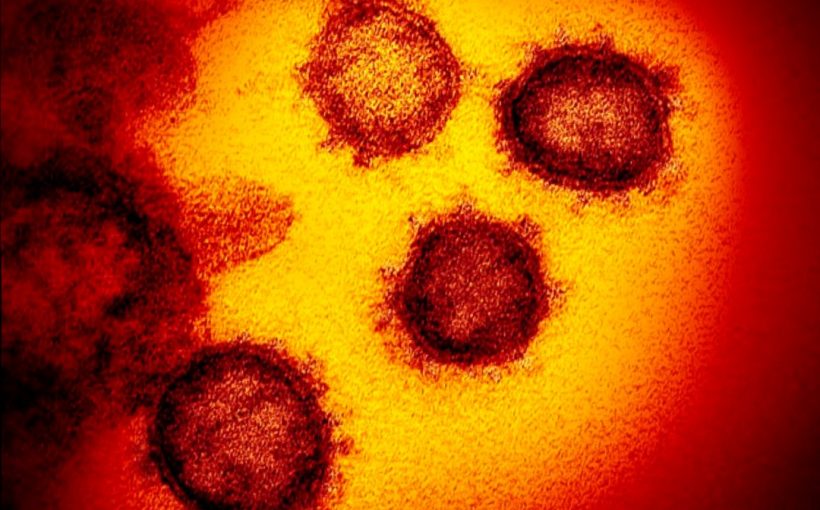Cristina Palacios—associate professor in the Department of Dietetics and Nutrition at the Robert Stempel College of Public Health & Social Work—and a team of international experts recently released a nutritional guide for the Latin American Society of Nutrition (SLAN) that offers recommendations to frontline workers on how to boost their immune systems during the COVID-19 pandemic.
“Frontline workers, whether they are health care workers or essential personnel in other industries that are helping our communities stay afloat, are putting their health a risk, and I hope that with these recommendations, we can at least help guide them to be safer,” Palacios said.
FIU News asked Palacios for tips that could help anyone who is at risk of coming into contact with the virus.
What are the nutritional concerns for frontline workers?
This group of workers may have nutritional insufficiencies due to long hours of work, lack of sleep, high stress, poor diet, dehydration, low sun exposure, among other conditions that may affect their nutritional status. We worked on a set of nutritional recommendations to help strengthen their immune system through supplements, in cases of strong research evidence, or foods, in cases of less evidence.
What is the role of nutrition and diet in trying to stay healthy during COVID-19?
The immune system needs multiple nutrients, such as vitamins and minerals, and certain bioactive compounds, such as omega 3 fatty acids, polyphenols, probiotics, for its optimal function. A low intake of these nutrients and bioactive compounds could increase a person’s risk of infections.
Because primary health care personnel and those who provide essential services to the community are at high risk of COVID-19 infection, they may need higher amounts of certain nutrients compared to the usual recommendations. Also, considering that these individuals need to wear personal protective equipment, work long shifts, sometimes under extreme conditions and have insufficient rest, high-stress levels, depression, poor nutrition and dehydration, an adequate diet is even more important.
Which nutrients are most essential in a daily diet for anyone who is on the front lines?
The key nutrients for strengthening the immune function are vitamins A, B3 (niacin), B9 (folate or folic acid), C, and D, and the minerals selenium and zinc. In addition, there are certain bioactive compounds that also are important for preventing infections, such as omega 3 fatty acids, polyphenols, probiotics, among others.
Should people be taking supplements (pills) to get these nutrients?
While many of the nutrients the body needs to stay healthy can be found in a balanced diet, it may be hard to get adequate amounts from diet alone—especially when the body needs an extra boost during times like these. We found that those on the front lines should be consuming individual supplements of three key nutrients: vitamin C, vitamin D and zinc.
The recommended amounts are:
- 2000 mg of vitamin C per day, divided in smaller doses of 500-1000 mg throughout the day
- 1000-2000 international units of vitamin D per day, divided into 2 doses and taken with food
- 40 mg zinc per day
What other nutrients should those on the front lines be consuming?
We did not find sufficient evidence to suggest other dietary supplements that could help prevent respiratory infections. There are other nutrients and bioactive compounds that can support the immune function, and we recommended that those on the frontlines consume a variety of foods that are nutrient rich to help boost that immunity.
Some of the foods they recommend include:
- Dairy products, fish oil, eggs, liver, orange fruits and vegetables for vitamin A
- Poultry, fish, nuts, and beans for vitamin B3 (niacin)
- Green vegetables, beans, nuts and fruits for vitamin B9 (folate or folic acid)
- Fish, shellfish, and nuts for selenium
- fish, flaxseed, and chia for omega 3 fatty acids
- Yogurt and fermented milk for probiotics
- Green tea, blackberries, grapes, and cranberries for polyphenols
Are there other dietary recommendations that those on the front lines should be following?
It is recommended that those on the front lines follow the recommendation of consuming 400 grams per day of fruits and vegetables, which is equivalent to five servings. In addition, those wearing protective gear may need to consume more than six liters of water to remain hydrated. As a reference, one gallon of water is equal to 3.8 liters. Caffeine intake should not exceed 400 mg per day; as a reference, a cup of green or black tea has 30-50 mg and a cup of black coffee has about 100 mg.
Jessica Drouet, Florida International University


